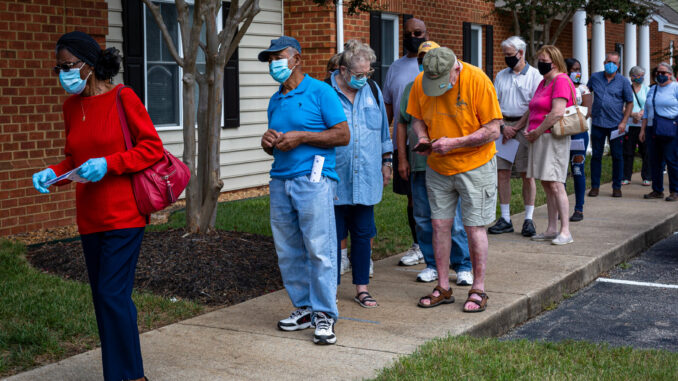
Being a college student in 2020 is hard. Our country is navigating through a virus that it never got under control. Students across the country are having to adapt to virtual learning. It’s also an election year. For many of us, it is going to be our first time voting for a president.
It’s hard to miss all the messaging that voting is important. There have been multiple celebrity campaigns emphasizing the importance of voting — including one where celebs go nude to get you to vote. Social media sites such as Facebook and Instagram had campaigns where they provided links to sites where one could register to vote. As someone who is very active on social media, it has become an everyday thing to see someone I follow share infographics that amplify a similar message: a vote for nobody is a vote for Trump.
Now don’t take what I’m about to say the wrong way; I loathe Trump. I hate his facist a**. If the coronavirus doesn’t take him out first, I would love to see him voted out. However, something about the recent culture of voter shaming that has popped up during this recent election cycle has been bothering me.
The idea that not voting makes you responsible for the possible re-election of Trump is astounding to me. Of course, I do think that if you can vote, you should — especially in local elections. However, I feel as if there is a certain caricature ascribed to people who don’t vote: if you don’t vote, you’re privileged. Data seems to indicate the opposite. Based on data provided by the Pew Research Center, most non-voters are part of the lower class, and tend to be nonwhite.
There are many reasons for this. Of course, this country has had a long history of voter suppression. According to the Milwaukee Independent, 25 states have adopted measures to make voting less accessible such as requiring more voter identification requirements since 2010. In- person early voting has started in Ohio, and lines in Columbus have stretched for a quarter of a mile. This is due to a law passed by Republicans in 2006 which limits the number of in-person early voting sites to one per county. In Vinton County, a Republican stronghold, there are only 13,500 Ohioans. That means they have approximately 97 times more polling places per voter than Franklin County, which is largely Democraticand home to more than 1.3 million people. Unfortunately, since Election Day isn’t a federal holiday, many people have to work or take care of other responsibilities that do not allow them to spend hours waiting in line.
There’s also the fact that many people just don’t see themselves represented by either candidate. While I would much prefer Biden to get elected over Trump, I do wish his campaign spent more time appealing to a more progressive, younger voter base. Instead of hammering down on the message “vote blue no matter who,” why doesn’t the campaign try listening to this demographic and their calls for universal healthcare and a more proactive climate change plan? I hope the people who have this “vote blue no matter who” mindset hold the Biden administration accountable if he were to get elected.
Truth be told, Election Day is today and I have no idea what’s going to happen. I know me and many of my peers will be absolutely devastated if Trump wins. However, before judging nonvoters, I hope that people acknowledge the very real way many potential voters are disenfranchised and discouraged from voting.
